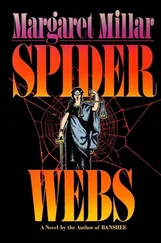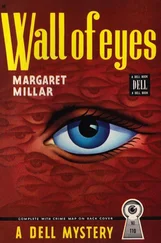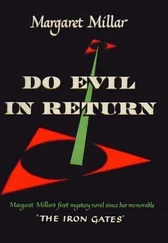Loftus shook his head, very seriously. “No, sir, I didn’t. I stabbed him in the neck. Four or five times, I believe.”
“Why?”
“I had a good many reasons.” He leaned toward Meecham in an almost confidential manner. “I look funny to you, don’t I? You think like a lot of people that a man who looks so funny must also be funny in the head. Looks are very important. Very deceiving too. I’m quite sane, quite intelligent even. There’s only one thing the matter with me; I am going to die.”
“Why are you telling me?”
“You asked why I killed Margolis. Well, that’s one of my reasons. Ever since I found out, a year ago, what my chances were, I’ve been pondering the situation. Since I was going to die anyway, I thought I would take someone with me — rid the world of someone it would be better off without, some incorrigible criminal, perhaps, or a dangerous politician. But when the time and opportunity came, it was Margolis. I wish it could have been someone more important. Margolis was very third-rate.”
“He had a wife and two kids.”
Loftus’ calm was unshaken. “He won’t be missed. I’ve done them a favor.”
“Well,” Meecham said quietly. “Come inside and sit down.”
“Thank you, sir.”
They walked, side by side, toward the house. It seemed to Meecham that it was the longest and strangest walk he’d ever taken.
Loftus looked at the clock on the mantel. 6:10. So the clock was going, all right, time was passing, but slow and soundless. He missed the noise of ticking. The clock he had in his own room ticked so loud that it often kept him awake. Sometimes in the middle of the night he got up and covered it with a glass bowl that he’d bought in the dime store. The glass smothered the noise a little but didn’t obscure the face of the clock.
The room was quiet. Mrs. Hamilton and the blonde girl had gone to another part of the house, and the doctor had come, and, after a long whispered conference in the hall, had gone away again. There were only the four of them left, the two policemen, and Meecham, and Loftus himself.
“Loftus.”
Loftus turned. “Yes, sir.” He wasn’t sure if this was the way to address a sheriff. He had never talked to one before.
“When did you write this?” Cordwink said.
“This afternoon.”
“Why?”
“I thought it would be better to write it down myself, to get things very clear. They are, aren’t they? Clear?”
Cordwink made a noise in the back of his throat. “Clear as a bell. You thought of everything, Loftus.”
“I tried to.”
“It makes me wonder whether you might have had a little help with it.”
“Who would help me?”
“Well, now. Meecham over here is always willing to lend a hand, especially if...”
“You’re off your rocker, Cordwink,” Meecham said flatly. “I never saw the man before in my life.”
“No?”
“No. And just what do you mean ‘help’ him with it? You talk as if we’re a couple of school kids and I did his homework for him, or something.”
Cordwink rustled the papers he held in his hand. There were eight of them, closely written. By moving his head slightly Loftus could see the top sheet. It had been the most difficult to write. He had made so many copies that he knew it by heart: My name is Earl Duane Loftus. I am writing this without coercion or advice on the part of anyone, and with the full knowledge that it can be used as evidence in a court of law...
Cordwink was speaking. “This comes at a convenient time for you, Meecham. Your client’s in jail, a lot of evidence against her...”
“Circumstantial.”
“... and then out of the blue comes a nice pat answer to all your problems.”
“But it didn’t come out of the blue,” Loftus said, blinking his eyes nervously. “Not at all, sir. I intended to admit everything right from the beginning, but I needed some time. I had to do a few things first, personal things. I’m afraid I didn’t give much thought to Mrs. Barkeley being held in jail. But then it didn’t do her any harm, did it? She’s a little spoiled.”
“Is she?”
“I think so.”
Cordwink’s mouth tightened. “There’s nothing in what you’ve written here to indicate that you knew her before last Saturday night.”
“I didn’t know her, not actually. I saw her once, a little over a year ago. I had come to consult Dr. Barkeley, I was feeling so tired and heavy, and I minded the heat so much. I...” He paused, folding his arms to hide his belly. It was my belly that worried me, he thought. It had begun to swell, bigger and bigger. I had nightmares about being a hideous freak, the only man in the world who ever had a baby. It wasn’t a baby, but I was a freak, all right. I didn’t know it then. I said, it’s my nerves, doctor, maybe I need a rest, a change of climate. You need hospital treatment, he said. I went to him three times, and the third time he told me what I had. It was only a word to me then, a pretty word like a girl’s name, Leukemia, Leukemia Smith, Leukemia Ann Johnston. Chronic myeloid leukemia, he said. He didn’t tell me I was dying. But I knew, I knew. He never sent me a bill.
“Loftus,” Cordwink said.
Loftus jerked his head up. “Yes, sir.”
“Go on. You were saying?”
“I... oh, yes. Yes. I saw Mrs. Barkeley once when I went to the doctor’s office. She was in the yard raking up leaves.”
“Did you talk to her?”
“No, oh no. I just passed by.”
“Did she notice you?”
“I don’t think so.”
“Have you ever talked to her?”
“Just on Saturday night, that’s the only time.”
Cordwink turned to the deputy he had brought with him, a young intense-looking man in a tweed suit. “Dun- lop, you’re getting all this down?”
“Yes, sir,” Dunlop said. “‘Just on Saturday night, that’s the only time.’”
“When Mrs. Barkeley came into the bar, Loftus, did you recognize her?”
“Of course. She’s a very pretty woman.”
“What was the name of the bar?”
“It’s in there, in my confession.”
“Tell me anyway.”
“Sam’s Café.”
“Are you sure? I thought it was Joe’s.”
Loftus shook his head. “It was Sam’s. If you’re trying to confuse me, you can’t. I remember everything very clearly. I only had one drink, a beer. I was just finishing it when Mrs. Barkeley came up to the bar and sat down beside me. This is all written down, but I suppose you want me to repeat it, just to test me, is that it?”
“Go on.”
“She smiled at me and said hello. I was flattered, thinking she might have remembered me. Then I saw how drunk she was, eyes glassy and out of focus, and her smile not real at all, just sort of painted on like a doll’s smile.”
“What else did she say?”
“You mean her exact words?”
“Yes.”
Loftus thought a moment. “She said, ‘God, this place stinks.’”
Meecham made a sound like a laugh and covered it with a cough. Cordwink turned and stared at him. “Is something amusing you, Meecham?”
“No.” Meecham coughed again. “I have a slight cold.”
“Is that a fact? Dunlop.”
“Yes, sir,” Dunlop said.
“Read that back. Mr. Meecham wants a good laugh.”
Dunlop bent over his notes. “‘God, this place stinks.’”
“There. Is it as funny as you thought it was, Meecham?”
Meecham looked as if he intended to make a sharp reply but he held it back. “No.”
“All right then. What else did Mrs. Barkeley say to you, Loftus?”
“She said she wanted a drink but she’d left her purse in the car. I bought her a beer. She had just started to drink it when Margolis came in. He was an impressive-looking man. I’d seen him before at the county hospital where I go for my X-ray treatments and shots. His firm was building the new T.B. wing and he used to hang around a lot, talking to the nurses. Margolis remembered me too. I’m quite a — freak.” He looked down at the floor. “Margolis asked Mrs. Barkeley to leave. She said she didn’t want to go home, and why didn’t all three of us go to another place for a drink. Margolis humored her. When she started for the door he said I was to come along and he’d give me a lift home. I accepted. I wanted a lift home, but there was more to it than that. I was excited, thrilled as a high-school kid at suddenly becoming a part of all that — glamor, I guess you’d call it. I didn’t realize until we got out to the car that offering me a lift home wasn’t exactly a noble gesture on Margolis’ part. He needed me to help him handle Mrs. Barkeley. She passed out in the back seat. Margolis shook her and swore at her, but she was limp as a rag.”
Читать дальше
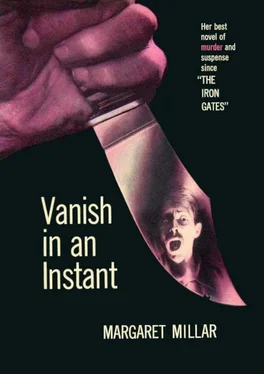



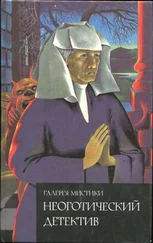
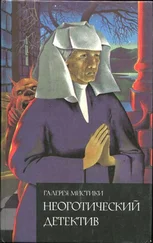

![Маргарет Миллар - Rose's Last Summer [= The Lively Corpse]](/books/384369/margaret-millar-rose-s-last-summer-the-lively-c-thumb.webp)
